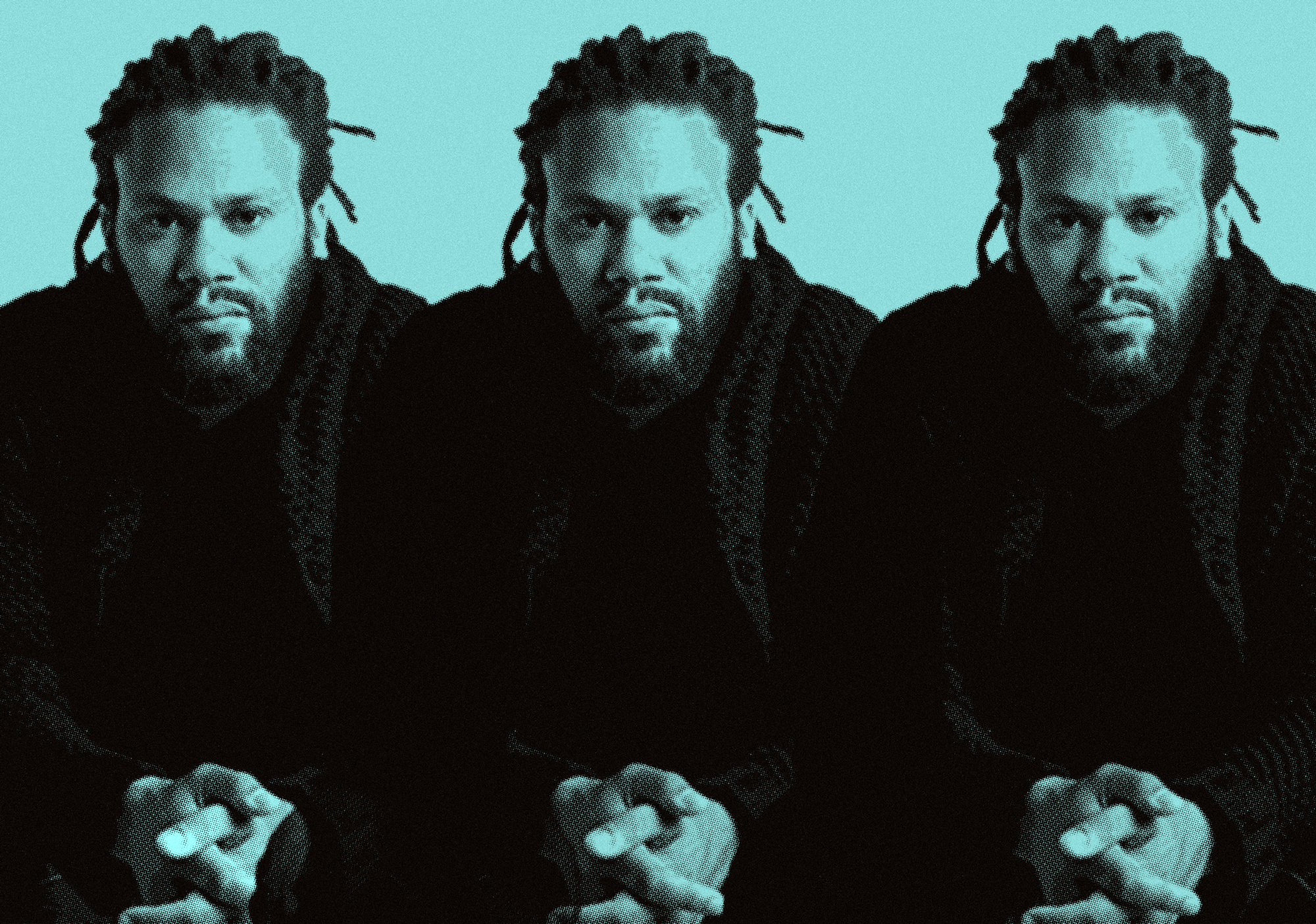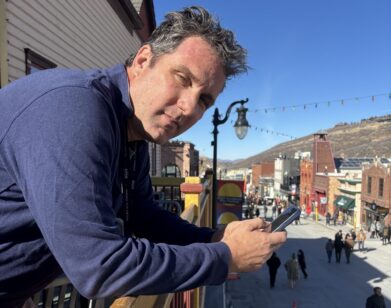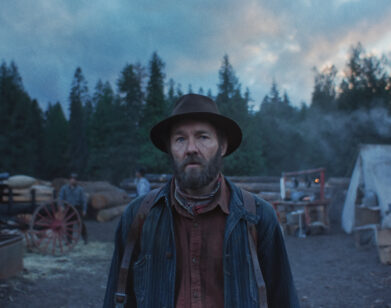Franklin Leonard, Founder of The Black List, Discusses This Moment and Movies

Franklin Leonard occupies a unique position in Hollywood. As the founder of The Black List, an online community and survey that props up the best unproduced screenplays in town, the 41-years-old Harvard graduate has been a champion and steward of stories and storytellers in an industry where the finest work doesn’t always rise to the top. Leonard, who has worked as an executive at production companies belonging to Leonardo DiCaprio and Will Smith, and as the Director of Development at Universal Pictures, has helped draw attention to the screenplays for movies such as The Revenant, Spotlight, and Slumdog Millionaire, featuring them on The Black List long before they were given the studio green light. And while Franklin has seen Black List scripts rack up Academy Award nominations and billions of dollars at the box office, he still bristles at the systemic inequalities that plague his industry. In the weeks following the death of George Floyd, Franklin has used his popular Twitter account to speak out on the change that needs to be made, in the movie industry and beyond. “I‘m just a guy trying to do good work,” Leonard says. “And ideally that work is a tide that raises all boats within the industry. And because the industry makes things for the entire world, it can be a tide that raises all boats for everybody.”
———
BEN BARNA: What did you make of the statements of solidarity that corporations, specifically studios like Disney, put out in the immediate aftermath of George Floyd’s murder?
FRANKLIN LEONARD: A lot of corporations released statements in solidarity with Black Lives Matter and their Black employees, artists, colleagues, community leaders, talent, storytellers, and fans. But I don’t believe their actions back up their words. And though sometimes words are action, words about deeds are nothing. So, my question is: If you stand in solidarity with Black Lives Matter, show me you believe that Black employees matter by hiring them. Show me that you believe Black actors have the same value as white actors in the algorithms that determine your greenlights. Show me that you believe women can direct movies, because, based on the numbers, most studios don’t. It’s ironic, that working in Hollywood, I’m just not that interested in performance. I’m interested in the act. I think you have to look at the state of these companies six months from now, six years from now. Are they keeping the energy that they’re claiming in this moment, or was this energy just an opportunity for them to cover themselves during the middle of a publicity nightmare of their own creation?
It’s really important that we remember that the first Hollywood blockbuster was Birth of a Nation, which existed in large part to make the case for Black criminality. It’s important that we remember that right now in America, according to the FBI, roughly 30 percent of gang members are Black, but more than 60 percent of the gang members in our films are Black. So when someone like former officer Derek Chauvin kneels on George Floyd’s neck, he believes that Black people are more likely or more prone to criminality, and more prone to violence because of the images that he is consuming that Hollywood has created. Until the industry begins to take responsibility for that reality and begins to embrace a culture, from set to the corporate boardrooms, that reflects the way the world actually looks, we as Black people and many other communities are going to continue to deal with terror as a consequence of the fictions that are being written about us.
BARNA: Disney backed up their statement with a $5 million donation to social justice causes. Do you see that as a sincere and sufficient gesture, or are you approaching it with skepticism?
LEONARD: My father used to say, “Don’t tell me your priorities, show me your budget.” A one-time, $5 million donation? I applaud it. But that is of significantly less interest to me than how they reform their hiring going forward, and how many dollars they’re spending on content made by and about Black people. If you believe that a donation and a statement of solidarity is an adequate response to the political moment in which we find ourselves, you revealed yourself and your priorities without me having to say anything.
I think the greatest irony in all of this is that embracing diversity in our artistic culture is one of those rare opportunities to do well financially by doing good when it comes to the ethics of diversity. I talk all the time about the fact that at the end of the day, yes, I’m very pro-diversity in Hollywood from an ethical perspective, but separate from that, I think diversity is important in Hollywood because I’d like for it to make a ton of money, and I’d like to make money as well. If I’m making a product with only 60 percent of my audience in mind, and I say 60 percent because that’s roughly the white population of America, then I’m not very good at my job. So my frustration is two-fold. There’s the ethical and moral reality of being Black and working in the industry, and then there’s the pure capitalist instinct, which is that I’d like this business to run optimally. And this kind of bias prevents us from running optimally. It‘s like trying to run a basketball team and saying, “We’re not going to hire any Black basketball players.” You’re about to get stomped out there by anybody else who is hiring the best from the entire population.
BARNA: How does actual change happen then? Where is the work done and who is doing it?
LEONARD: The work happens at every level. It happens in every hiring decision. It happens in every script meeting. It happens literally in all of our lives. It’s not women’s work to get more female directors hired. It’s not Black people’s jobs to make sure that more Black people are hired. It’s everybody’s job to make sure that the aggregate film culture is representative of the nation and the world. At the top levels, that means two things. It means either the people who are currently running the companies that run Hollywood need to realize that they have been suboptimally running their businesses and make changes so that their companies are better aligned with the reality of their audiences. Or, those same people who run those companies should try to make as many sexist and racist decisions as quickly as possible, so they can run their companies into the ground and be replaced by people who do get it.
BARNA: We saw a reckoning of sorts in Hollywood a few years ago with the #OscarsSoWhite movement. Do you think any lasting change came from that?
LEONARD: I think that April Reign, who created the #OscarsSoWhite hashtag, did an extraordinary job of opening a new and valuable front in the war to make Hollywood function more optimally, and to praise those artists who deserve praise. And if you look at the demographics of the Academy as a whole, in the years following #OscarsSoWhite, the numbers are inarguable—change has been made. But again, that’s only one front of this much larger, multi-front war. You think about the Moonlight win, the Parasite win, you think about Spike Lee’s win for BlackKklansman, I don’t know that those would have happened if it weren’t for April Reign. And I think Spike has said as much. What’s staggering though is I can cite all those wins that have happened since #OscarsSoWhite, and yet, I think we’ve had one woman nominated for best director since then.
BARNA: What did you make of HBO Max’s initial decision to pull Gone With the Wind, which they’ve now adjusted to include a disclaimer before the movie?
LEONARD: Initially they were pulling it, and then after the outcry, they very quickly announced they would be putting it back with the disclaimer, which they should have done in the first place. Turner Classic Movies, which is also owned by WarnerMedia, had been presenting Gone With the Wind with a warning, I believe, for years. It’s also notable that after the announcement, I think Gone With the Wind became one of the top-selling movies on iTunes. Threatening to remove it from streaming platforms is a great way to boost your profit margin if you’re also selling it simultaneously. But I think it’s very silly. Context is very important, but erasure of the first-ever Black winner of an Academy Award in Hattie McDaniel doesn’t solve anything. What we need to do is provide additional context for these things. It’s not that you should pull Gone With the Wind, but there’s a script written by a Black writer, Gesha-Marie Bland, about the making of Gone With the Wind, told from Hattie McDaniel’s perspective. Make that movie, HBO Max. Put that on your platform.
BARNA: You tweeted about an influx of white people sending you scripts about Black people to get your opinion. I’ve heard other Black people mention that their white friends have been calling to either apologize or check in to see how they are doing. What do you expect from white people, or your white friends at this moment?
LEONARD: I appreciate hearing from my friends, period. They reach out from a place of love and care. What I don’t appreciate is people who reach out not because of concern for my emotional wellbeing, but seeking absolution for their whiteness. I don’t appreciate people reaching out, asking me to help them navigate this moment for their company without offering compensation for the financial bounty that my advice is likely to create for them.
BARNA: Has that happened?
LEONARD: Absolutely. Even prior to this moment, it happened nonstop. But especially in this moment, where people running companies know that they have to respond to this in an intelligent way, and in a way that the Black community will respond positively to. I think a lot of my Black peers have experienced this. You become the person that these people look to for business advice, but they aren‘t offering you money for essentially a business service. But no, there’s no decision tree that I can provide for white people for how to handle this moment. Hopefully, you’ve been doing this work prior to this moment to understand what white supremacy is, how you have benefited from it, how the people you care about who don’t share your racial background have experienced the consequences of it. And so when you talk to them, it will be two friends talking. It won’t be, “I don’t know what to say because I realized that I’ve made these mistakes.”
BARNA: Speaking of white people apologizing or seeking absolution, what did you make of that widely mocked “I Take Responsibility” PSA that emerged last week and featured celebrities like Sarah Paulson and Aaron Paul?
LEONARD: I’m a huge fan of many of the participants in that video. I did not know what to make of it, and I don’t think it requires any further comment.
BARNA: You recently tweeted that you would love to see a panel of white people talking about how their whiteness has benefited their careers in the movie industry. Can you expand on that?
LEONARD: Throughout my career, I’ve been invited to participate in panels where the primary subject is my Blackness and how I experienced it in the world and in the industry. I’ve never once seen a panel about whiteness and how white people experience it and how it has affected their careers. And I think that at this moment, when all of these companies and their leadership are expressing their solidarity with the Black Lives Matter movement, I’d love to hear these folks talk about their experience with being white, and how being white has affected and likely benefited their careers. I’d like to hear the CEOs of these media companies answer the question: How would your career trajectory have been different if you were a black woman? To what extent under your watch have your business decisions been touched, if at all, by the systemic racism that still exists in American society, and around the world?
BARNA: Are you concerned that because of the current production freeze, that it might be awhile before we have movies and television address this current moment?
LEONARD: I think the best art about a moment is rarely made in that moment, certainly when it comes to longer-form art. Music, maybe. Photography, definitely. But were the best novels about World War II written during World War II? Was the best fiction about the Spanish flu written at the end of 1918? I don’t think so. With a bit of remove and self-reflection about what this moment means, we’re likely to get better stories than we are trying to rush into production. There are so many unknowns about what the future holds. I’m reluctant to want to rush to make anything that is the definitive story of our time. I think the definitive story of our time is our time, and there will be various artistic interpretations of it in the future, and I look forward to the best of those.
BARNA: Are you optimistic at the way that this movement has sustained itself and the way that it’s evolving?
LEONARD: I’m incredibly inspired by the work of more people than I will ever know. I’ve been Black in America for 41 years, and this moment is unlike anything that I’ve ever personally seen. However, the moment is not the issue. I’m much more interested in what happens in six months, in 12 months, in six years, than I am in what happens tomorrow.
BARNA: Do you ever think about working at another studio? You seem like just the kind of person who could incite change from within.
LEONARD: There was a Harvard Business School study that came out last September that found that movies made from Black List scripts made 90% more in revenue than movies made from non–Black List scripts. I’m certain that with access to financial capital, I’d be able to deliver a pretty substantial return on investment compared to other financing entities in this town. My phone lines are open.






